How can middle-aged and elderly people prevent vascular plaque blockage?
How can middle-aged and elderly people prevent vascular plaque blockage? 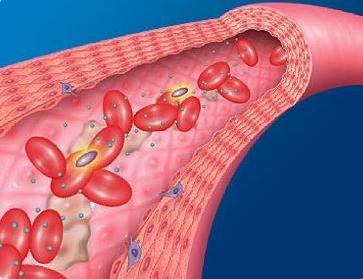
Thanks for the invite.
The formation of plaque is in fact closely related to age, middle-aged and elderly friends more or less may have some plaque on the blood vessels, which is like a water pipe will rust after a long time, the blood vessels may produce plaque after a long time, and there may be thrombus and other embolism in the blood vessels may be formed, in fact, if these plaques and embolisms have not developed to the point of obstructing the large area of blood flow or the main blood veins, middle-aged and elderly friends do not need to be overly anxious, because These are normal phenomena, even young people may have plaques on their blood vessels, we may not be able to stop it from happening, but we can face it positively and use a variety of methods to prevent more blood vessels from producing plaques or embolisms.
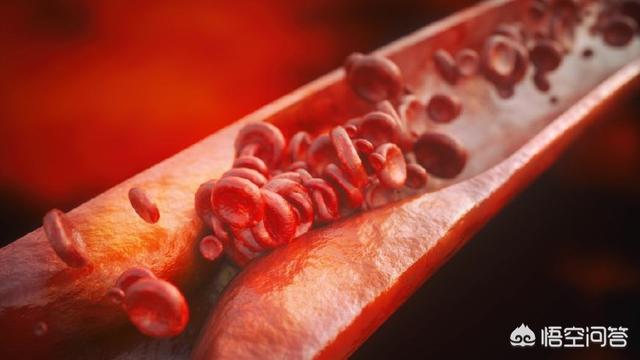
So how do you prevent plaque and blood vessel blockages?
Keeping the blood clean in your veins
Plaque in blood vessels is usually due to more free triglycerides, glucose, cholesterol in the blood, flow through the inner wall of the blood vessel, scratched the inner wall of the blood vessel is more likely to attract the aggregation of lipoproteins, the aggregation of lipoproteins is the precursor to the induction of atherosclerosis, for a longer period of time, the wall of the blood vessel in the place of the formation of plaque, and soon there may also be an embolism.
Higher cholesterol in the blood, especially with higher LDL, makes it easier to accumulate lipoproteins, and the combination of embolisms in the blood vessels can also form blood clots that can impede blood flow and induce high blood pressure. So how do you keep your blood vessels clean?
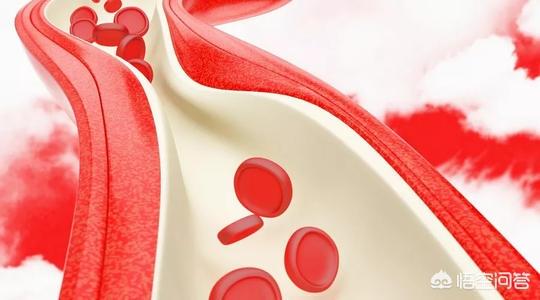
① Eat a light, moderate diet.If you always have a diet high in oil, fat and sugar, it will inevitably add more glucose, fatty acids and cholesterol to your blood, and with more clutter in your blood vessels, you will do more harm to the walls of your blood vessels. Take a lighter diet everyday, reduce the number of times you eat out/order takeout, and cook and eat at home more often. Usually also avoid overeating diet, everything seven minutes full, not only can reduce the burden on the stomach and intestines, stomach and spleen, but also can reduce the blood in the debris, protect blood vessels.
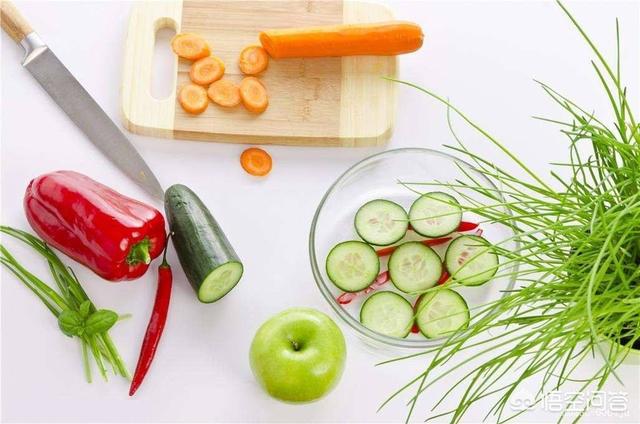
(ii) Increase HDL and decrease LDL.High-density lipoprotein (HDL) is a kind of good cholesterol, it can accelerate the transportation of blood cholesterol to the liver to be disposed of, so that blood vessels to maintain as clean as possible, is the scavenger of the blood vessels, also known as the "longevity factor"; and low-density lipoprotein (LDL) is a kind of bad cholesterol, which on the contrary, is to accelerate the accumulation of debris in the blood vessel wall, accelerating the formation of plaque bad guys. LDL is a bad cholesterol, which instead accelerates the accumulation of debris on the walls of blood vessels, attracting butterflies and bees and accelerating the formation of plaque bad guys.
To increase HDL we should eat more foods rich in unsaturated fatty acids, such as deep-sea fish, nuts, soybeans or soy products, and choose more vegetable oils and fewer animal fats, which can smooth blood lipids and increase HDL, and to reduce LDL we need to avoid foods high in cholesterol and trans fatty acids, such as fried foods, barbecues, puffed snacks, instant drinks, hot pots, and animal organs. snacks, instant drinks, hot pots, and animal offal.

③ Intake of dietary fiber-rich foods.Dietary fiber is very beneficial to the human body, it can not be directly digested by the stomach and intestines, so it can slow down the speed of food digestion, slow down the speed of fat, cholesterol, sugar absorption, clean the blood, and smooth the blood fat and blood sugar. Plant foods are generally rich in dietary fiber, the most abundant such as fruits and vegetables, whole grains, coarse grains and beans.
Regular life and proper exercise
Irregular life may cause plaque formation, such as staying up late and overnight activities, which not only reduces the body's resistance, but also accelerates the aging of blood vessels, life should be regular. Studies have found that exercise can effectively increase HDL content, and as mentioned earlier, HDL is a favorable helper in maintaining clean blood vessels. Middle-aged and elderly friends do not need a lot of exercise, do not need high intensity, just need to ensure that the daily 6 to 7,000 steps of continuous walking is actually a very good exercise, walk for about 40 minutes after meals, usually do chores at home or something, do not sit for a long time and lie down on the effect.

Smoking cessation/lower alcohol consumption
Smoking and drinking are serious threats to the body, according to the survey, the nicotine content of tobacco can accelerate the spread of plaque, is one of the culprits of cardiovascular disease, if you want to protect the cardiovascular and cerebral vascular friends then it is best to quit smoking as soon as possible. The effect of alcohol can not be determined at present, because drinking does have benefits, but the disadvantages are also clearly visible. Drinking can reduce blood pressure, but at the same time will make the blood fat rise, so we can only "appropriate drinking", absolutely not long-term alcoholism, the morning to get up to faint two two. Recommended for middle-aged and elderly friends to drink a day control within 15g, white wine no more than two, red wine no more than half a cup, beer do not exceed half a bottle. It is best to choose a low degree of alcohol to drink, can drink less to drink, can not drink to drink.
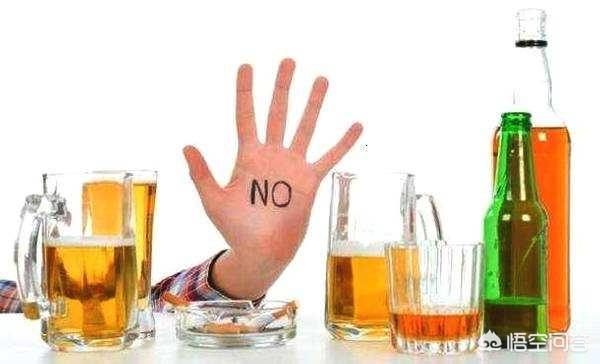
Eat more fresh fruits and vegetables
Fresh fruits and vegetables carry rich antioxidant components, because many plant foods carry natural pigments, which are antioxidant components, such as anthocyanins, carotenoids, lycopene, chlorophyll, lutein, etc. There are also some plant foods that are richer in water-soluble vitamin components, which are also antioxidants, such as vitamin C, vitamin B family. These ingredients are able to fight free radicals in the body and slow down the aging of blood vessels. Some of these ingredients are also able to resist the formation of vascular plaques, such as vitamin B6 (folic acid) which inhibits the process of homocysteine metabolism, which increases the risk of plaque formation.
 After people reach middle age, either mildly or seriously have atherosclerosis, some people will also have the occurrence of arterial plaque, if the plaque rupture may also cause thrombosis and life-threatening. Therefore, middle-aged and elderly people should do a good job of prevention according to their own physical condition. In general, there are three kinds of cases.
After people reach middle age, either mildly or seriously have atherosclerosis, some people will also have the occurrence of arterial plaque, if the plaque rupture may also cause thrombosis and life-threatening. Therefore, middle-aged and elderly people should do a good job of prevention according to their own physical condition. In general, there are three kinds of cases.
good health: Such middle-aged and elderly people with age, blood vessels will have varying degrees of hardening, this natural aging is unavoidable, but can slow down the speed of this aging process. For example, scientific diet, reasonable exercise, quit smoking and alcohol, work and rest, keep a happy mood, etc..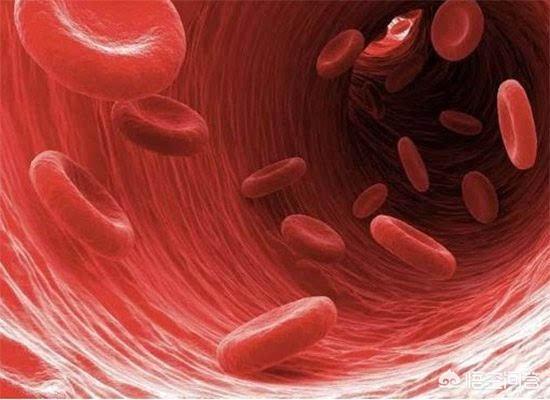 Suffering from an underlying disease:For example, patients with diabetes, hypertension, hyperlipidemia and other diseases, the three are closely linked, long-term abnormalities will accelerate the development of atherosclerosis, and can form arterial plaque. The existence of plaque can make the lumen of blood vessels narrow, leading to poor blood flow and cause blood supply shortage, coronary heart disease, cerebral ischemia and other diseases. Therefore, it is very important to control blood glucose, blood pressure and blood lipids, in addition to adhering to good living habits, we should standardize the use of hypoglycemic, antihypertensive and lipid-lowering drugs in a timely manner.
Suffering from an underlying disease:For example, patients with diabetes, hypertension, hyperlipidemia and other diseases, the three are closely linked, long-term abnormalities will accelerate the development of atherosclerosis, and can form arterial plaque. The existence of plaque can make the lumen of blood vessels narrow, leading to poor blood flow and cause blood supply shortage, coronary heart disease, cerebral ischemia and other diseases. Therefore, it is very important to control blood glucose, blood pressure and blood lipids, in addition to adhering to good living habits, we should standardize the use of hypoglycemic, antihypertensive and lipid-lowering drugs in a timely manner.
Development of arterial plaques: Once an arterial plaque has formed, it is very difficult to eliminate it, so the first thing to do is to stop it from growing as much as possible, and the second thing to do is to prevent it from rupturing, as its rupture causes platelets to aggregate and form a thrombus, which can completely block the blood vessel or travel with the blood flow throughout the body and cause infarction, which should be treated aggressively and last for the rest of one's life.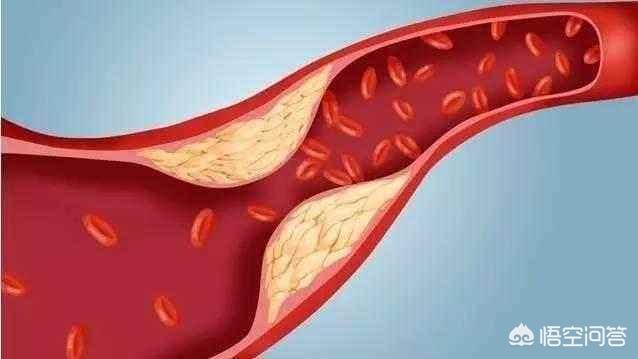 The mainstay of treatment for atherosclerotic plaque is the combination of statins and antiplatelet agents. The main effect of statins is to reduce the level of low-density lipoprotein (LDL) in atherosclerosis, and at the same time play an anti-inflammatory role in stabilizing plaque; anti-platelet coagulants such as aspirin play a role in preventing platelet aggregation and the formation of thrombus in case of rupture of the plaque. Both drugs should be taken for a long time or even for life.
The mainstay of treatment for atherosclerotic plaque is the combination of statins and antiplatelet agents. The main effect of statins is to reduce the level of low-density lipoprotein (LDL) in atherosclerosis, and at the same time play an anti-inflammatory role in stabilizing plaque; anti-platelet coagulants such as aspirin play a role in preventing platelet aggregation and the formation of thrombus in case of rupture of the plaque. Both drugs should be taken for a long time or even for life.
In conclusion, people in their middle and old age, good living habits help to slow down the process of aging such as atherosclerosis, and on the basis of active treatment of chronic underlying diseases, under the guidance of a doctor to take statin drugs and aspirin, etc. to prevent rupture of arterial plaques, thrombosis, caused by the blockage of civil blood vessels effective measures.
I hope this answer can help you, click on the attention of the daily listening to health, together to learn and exchange more health knowledge].
How to prevent vascular plaque blockage in middle-aged and elderly people is a cliché but must always give everyone a reminder of the topic. At this stage, the high incidence of cardiovascular and cerebrovascular diseases, has been the first killer. The root cause of cardiovascular disease is the human artery atheromatous plaque lesions. So how do we prevent these atheromatous plaques from progressing to the point of blockage? Today, Dr. Zhang will talk about some common sense in this regard.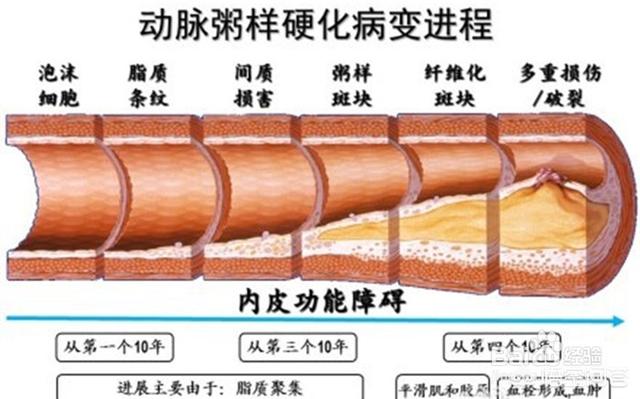
I. Active control of high-risk diseases that produce atheromatous plaques
Which diseases may be risk factors for atherosclerotic disease? The first is diabetes mellitus, which is known to play the most important role in the development of atherosclerotic diseases. It can be said that diabetes is synonymous with atherosclerotic disease. Therefore, diabetic patients must strictly control their blood sugar. Other risk factors include hypertension, hyperlipidemia, hyperuricemia, hyperhomocysteinemia and a series of other diseases. It is recommended that if you have the above risk factors, please actively control the risk factors to slow down the appearance and development of atherosclerotic plaques.
Second, active cessation of smoking and restriction of alcohol
Aggressive smoking cessation and alcohol restriction have an important place in the prevention of atherosclerotic disease. It is an industry-recognized fact that tobacco can cause the development and growth of atherosclerotic plaques. High intake of alcohol is also a risk factor for atherosclerotic plaques. Therefore, cardiovascular academics have always recommended quitting smoking and limiting alcohol. Cigarette is one can not smoke, alcohol is white wine can not exceed one or two, red wine can not exceed 150ml, beer can not exceed 250ml.
III. Regular lifestyle
Regular living is important to prevent atherosclerotic disease. Many studies have shown that staying up late can trigger the occurrence and development of atherosclerotic plaques, while a regular life also requires reasonable meals and regular living. These most common details in our lives can profoundly affect everyone's health.
IV. Psychological balance
Great changes in emotions play an important role in the development of atherosclerosis. Elderly people's arterial vessels are already in an old state, and if the emotional stimulation is too large, it is likely to cause heart attacks and other acute events. This is a common occurrence in clinical practice, so it is also advised again that the majority of middle-aged and elderly friends to achieve psychological balance, so as to reduce the onset of the disease.
Of course there are many other things to pay special attention to in the process of preventing atherosclerotic plaque, but the above four points are the most important to pay attention to. I hope my introduction will be helpful to the majority of middle-aged and elderly friends.
For more health information, please follow Dr. Zhang Zhiying's headline.
Middle-aged and elderly people can prevent blood clots through diet or exercise. Diet includes eating more garlic, apples, onion heads, buckwheat and other foods. Exercise includes walking, playing tai chi or dancing with a sword, etc.The following is a detailed description of what you can expect to see in the future. The following "ask the doctor" will provide you with a detailed introduction.
Which conditions have a higher risk of forming blood clots?

Have clotting problems, don't exercise regularly, have had a recent injury or surgery, need prolonged bed rest.
Undergoing cancer treatment, birth control pills and hormone therapy can make the blood prone to forming clots.
Pregnant women or women who have just given birth have increased venous pressure and are at risk for deep vein thrombosis.
Long-distance flights and long car or train rides also increase the risk of deep vein thrombosis.
Smoking also increases the risk of clotting.
Elderly people who are hospitalized for broken bones or other illnesses are in poor physical condition and their blood may be in a state where it tends to clot. Without exercise, blood clots are more likely to form.
Diets that help prevent blood clots

molassesOne of the best natural antithrombotic prophylactics that have been discovered.
Fish oil, sunflower oil, corn oilLinoleic acid-like substances contained in vegetable oils such as can effectively inhibit platelet aggregation.
curry powderIt is rich in curcumin, which can play a role in preventing platelet aggregation.
Apples, onion heads, buckwheatIt is rich in quercetin, which has the effect of reducing platelet aggregation.
teasGreen tea, in particular, is rich in catecholamines, which have the effect of reducing platelet aggregation and antithrombotic.
tomatoesContains lycopene, which prevents platelet aggregation.
grape juiceRich in resveratrol, which prevents platelet aggregation and thrombosis.
citrus fruitAll are natural thrombosis prevention foods that fight platelet aggregation.
Exercises to help prevent blood clots

Try to walk when possible.
Activities such as gymnastics, tai chi and sword dancing are available.
If you are on a plane, train or automobile, stand up from time to time and try to find opportunities to stretch your legs.
Avoid prolonged immobilization after surgery by doing exercises such as elevating your legs in bed with your doctor's permission.
Tip: People who are at higher risk of forming blood clots may use medications, such as aspirin, as directed by their doctor.
The above content is organized by "ask the doctor", want to know more authoritative, interesting health knowledge, welcome to follow us!
Middle-aged and elderly people need to pay attention to these points to prevent vascular plaque blockage.
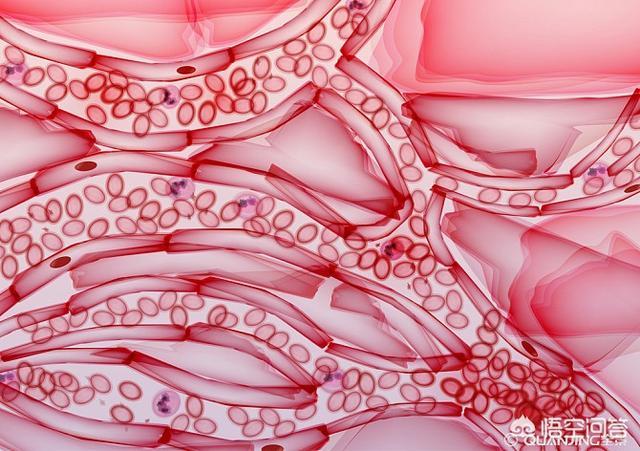
1, large meals that tend to clog blood vessels.
In outdoor entertainment, restaurant dishes are often processed into "high oil, high salt, high sugar" and "thick oil and red sauce", resulting in more and more fat in the blood vessels, which tends to clog the blood vessels.
2, the circadian clock is turned upside down, disrupting the vascular biological clock.
Late at night, this leads to an overproduction of adrenaline and norepinephrine, which constricts blood vessels, slows blood flow and increases viscosity. Over the long term, people who are "black and white" have twice the risk of heart disease as normal people.
3, two packs of cigarettes a day, blood vessels are prone to "poisoning".
"Smoking is one of the leading causes of vascular failure, and even if you're in good health, with two packs of cigarettes a day, it certainly leaves toxins in your blood vessels that make them weaker day after day." Smoking at night increases blood viscosity by more than eight times.
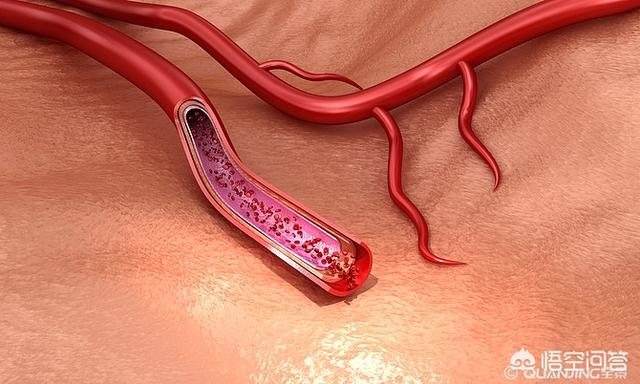
4, less exercise, more vascular garbage.
Lower extremity blood vessels are also very important, but often neglected. Exercise opens up more capillaries and promotes microcirculation; without exercise, garbage builds up in the blood vessels and forms the "ticking time bomb" of atherosclerotic plaque, which also affects the blood supply to the capillaries and can detonate at any time.
PREVENTIVE EFFECT: The main ingredient of Fire Hemp Tea is Fire Hemp Seed, which is rich in omega-3 fatty acids. It can diastole blood vessels and prevent platelet aggregation and thrombosis. It also reduces the risk of cardiovascular disease and prevents recurrence of stroke. In addition, the tea polyphenols of flax tea can reduce the level of bad cholesterol in the blood, enhance the elasticity and flexibility of blood vessels, and prevent hardening of blood vessels. In addition, the effect of lowering three highs is very obvious. It is especially suitable for long-term consumption by people with three highs.
Many middle-aged and elderly people, in the physical examination was told that blood vessels have plaque formation. Once the plaque is formed, it will suggest that the whole body atherosclerosis, cardiovascular and cerebrovascular disease incidence rate increased significantly. This is a "ticking time bomb", may explode at any time, leading to blood vessel blockage, which in turn triggers a series of serious complications, plaque in the brain will lead to stroke, cerebral infarction, etc., in the heart will induce myocardial infarction and so on. What is even more terrible is that if there has been atherosclerotic plaque, so far, in addition to carotid artery intima-media stripping, there is no other way to remove the plaque, even if you take a statin, but only to slow down the development of the plaque, large doses of the use of the possibility of making the soft plaque to reduce the size of the plaque to the hard plaque transformation, but it is difficult to remove the plaque. Therefore, it is especially important to prevent vascular plaque blockage. So, how to prevent vascular plaque blockage in middle-aged and elderly people?
Simply put, the best way to prevent and control plaque blockage in middle-aged and old-aged blood vessels is to start prevention as early as possible when plaque has not yet begun to form or has just formed, so as to slow down the occurrence and development of plaque. Specific preventive measures, the following aspects can be referred to.
I. Healthy diet. A healthy diet can keep the heart healthy and reduce the risk of atherosclerotic plaque formation. Specific dietary principles should pay attention to "three more and two less": eat more food rich in polyunsaturated fatty acids and monounsaturated fatty acids, such as olive oil, a variety of nuts, deep-sea fish and other foods; eat more fresh vegetables and fruits; eat more dietary fiber-rich foods, such as vegetables, lentils, beans and oats, and other whole grains. Eat less animal fats and artificial fats and oils, and reduce the intake of saturated fatty acids and trans fatty acids; eat less sweets, reduce sugar intake, especially extra added sugar in the diet, try not to drink sugary drinks, and eat less cookies, cakes, ice cream and other foods with high sugar content.
Second, strengthen exercise. Exercise can improve heart and blood vessel health and help prevent heart problems and atherosclerotic plaque formation. Therefore, it is important to strengthen exercise and enhance it according to your own situation and be consistent.
Cessation of smoking and alcohol consumption. Smoking will damage the endothelium of the arteries, which is the starting factor for the formation of atherosclerotic plaques, and smoking will also accelerate atherosclerosis, quit smoking can reduce the risk of atherosclerotic plaque formation. Drinking alcohol will damage the heart and liver, affect cholesterol metabolism, aggravate atherosclerosis, quit drinking is conducive to heart and blood vessel health.
IV. Weight control. Keeping your weight within the normal range is conducive to maintaining a healthy heart and blood vessels, and if you are overweight, you should reduce your weight appropriately.
Reduce mental stress. Mental tension, work life is full of pressure, is not conducive to the health of blood vessels, will aggravate atherosclerosis and plaque formation, should learn to self decompression, reduce mental stress, regular work and rest, enjoy life.
Sixth, pay attention to regular physical examination, timely detection of such as high blood lipids, high blood pressure, diabetes and other risk factors of atherosclerotic plaque formation, timely control; in addition, according to their own needs, under the guidance of the doctor to take statin drugs and aspirin.
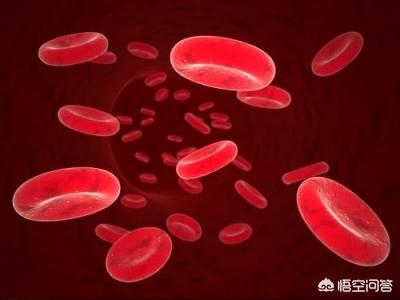
Click on the bottom of the page [Learn More] to see more answers or ask the doctor a question for free!
Follow "Family Doctor Online" headline, more health Q&A easy to see~~~~
As of 2013, China's dyslipidemia population over the age of 18 has reached 180 million. The total prevalence of dyslipidemia is as high as 13.2%. That is to say, on average, one out of every six people is dyslipidemic. Dyslipidemia, especially hypercholesterolemia is the culprit of atherosclerosis, such plaque once the blockage of blood vessels will cause cerebral embolism, heart attack, kidney damage, etc., and may also take a person's life. Therefore, keeping blood vessels clean and eliminating plaque is an important goal for every middle-aged and elderly person to be responsible for their health.
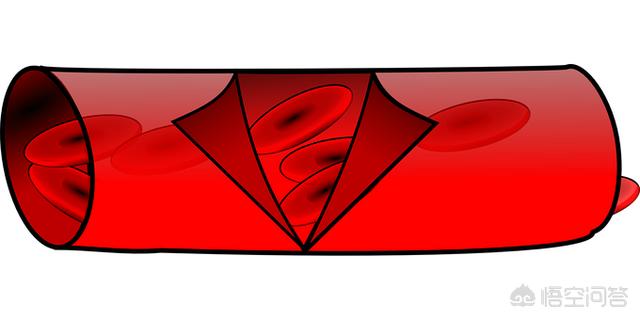
Once you suffer from dyslipidemia, you must do three things well: including improving lifestyle, strengthening exercise, and reasonable statin therapy. And the most basic of them is reasonable diet, that is, keep your mouth shut:
1. A balance
Reasonable dietary structure, balanced nutrition. Recipes are diversified, and the diet should not be lacking in any major food group, whether staple food or vegetables and fruits, whether it is chicken, duck, fish or milk and soybean products, all of which should be eaten in some, but not in large quantities. At the same time, the following five principles are emphasized in specific daily recipes.
2. Principle 1: Low calorie
People with high blood cholesterol who are overweight have more calories than their body needs. People who are obese or overweight need to lose weight to get their weight up to par.
3. Principle II: Low fat
Daily recipes should be less oil, do not choose animal fats, especially animal oils such as lard, tallow, mutton fat, duck fat, cream, butter, etc., choose vegetable oil frying, increase the proportion of flaxseed oil and olive oil to replace part of the soybean oil or peanut oil and so on.
4. Principle III: Low cholesterol
Hyperlipidemic people should limit the intake of high cholesterol foods, like animal offal, fish roe, squid, excessive egg yolks, etc. You can appropriately increase the intake of plant sterols and eat some soy products or soy milk.
5. Principle IV: Low sugar
Don't eat too much refined sugars, honey, fruit juices, jams, honey money and other sweets and sweet snacks, and try not to put sugar in your dishes.
6. Principle 5: High fiber
High-fiber diet requires us to eat more fresh fruits and vegetables, to ensure that the intake of fresh vegetables and fruits to reach more than 400 grams, increase the proportion of dark or green vegetables intake, the main food to increase the coarse grains, which increases the dietary fiber a good way.

Mastering the above dietary principles, starting with diet, matching with exercise, and choosing medications as prescribed by your doctor when necessary, is the only way to take vascular health into your own hands.
Author: Cai Jianxia National Public Nutritionist II Registered Nutrition Technician Nurse-in-Charge
Atherosclerotic plaques, or vascular plaques as they are often called, are indeed the main culprits of clogged blood vessels that lead to coronary heart disease and cerebral infarction. Atherosclerotic plaques are formed for two primary reasons. The first is the material basis of plaque: LDL cholesterol; the second is the mechanism that induces plaque: platelet aggregation.

Therefore prevention of plaque blockage starts with these two areas. Lipid lowering is the main means of lowering LDL cholesterol in the blood, in addition to lowering blood glucose and blood uric acid, which can also cause an increase in blood lipids. Preventing platelet aggregation starts with preventing vascular inflammation and minor injuries, because only damage to blood vessels can cause platelet aggregation. Causes of vascular damage include hypertension, diabetes, hyperuricemia, smoking and drinking late at night.
If we can do all these, we can largely delay the formation and blockage of vascular plaque. Once plaque has already appeared, lipid-lowering therapy and antiplatelet therapy are a must, along with antihypertensive, hypoglycemic and uric acid-lowering therapies.
Thank you for your invitation! As we grow older, more and more things are taken into the body from the outside, as well as the body does not process the ingested substances in a timely manner or process them abnormally, some substances will slowly accumulate in the body and not be processed in a timely manner, forming harmful substances that jeopardize the body, as well as harmful foci.
Fat is one of the body's three essential nutrients, must be every day to intake some of it, but if because of changes in lifestyle habits, intake of body fat is too much, or due to age, the body of the normal intake of those fats are not able to break down and utilize the fat in a timely manner, intake of fat in the body will become a hazardous substance, deposition in the body.
Those excess fats, if deposited in the walls of the blood vessels, form fatty plaques, also known as atherosclerosis.
After atherosclerosis, the atheromatous plaque becomes larger and thicker if there continues to be continued fat deposition.
Atherosclerotic plaques become bigger and thicker, which will narrow the lumen of the blood vessels, leading to ischemia of the distal arteries or blood stasis of the distal veins, resulting in ischemic or blood stasis diseases caused by vascular plaques, such as coronary artery disease, cerebral arterial insufficiency, and venous stasis necrosis of the lower extremities, and other diseases.
If these atheromatous plaque rupture on the blood vessels, plaque rupture into the fat droplets in the blood vessels, along with the blood flow may also lead to other organs to appear infarct disease such as arterial atheromatous plaque rupture can cause acute myocardial infarction, cerebral infarction, renal artery infarction and other acute severe ischemic disease, vena cava atheromatous plaque rupture can lead to acute pulmonary embolism.
At the same time, the presence of plaque affects the normal structure of the blood vessels, which can lead to rupture or tearing of the blood vessels at the plaque, resulting in acute vascular diseases, such as arterial entrapment and arterial tearing syndrome.
Since atherosclerotic plaques are so harmful to the body, how can we prevent reduce minimize the formation of atherosclerotic plaques, and after the formation of plaques, how to prevent plaque blockage?
First of all, middle-aged and elderly people to prevent vascular plaque blockage, you need to change some of the usual life has been habits, because usually some bad habits will make the blood vessel blockage is more serious, change the bad habits, will be able to stop the further aggravation of vascular plaque, play a role in reducing the role of vascular plaque.
For example, before there is smoking and drinking bad habits, we should try to change the habit of smoking and drinking, if you like to eat greasy food habits, now we have to eat some vegetarian food, if you like to eat some fried spicy food, now we have to eat some light food, if you like to sit still, now we have to move around often, do some aerobic exercise to consume too much food eaten every day.
Secondly, middle-aged and elderly people to prevent blood vessel blockage, you can also eat some of the promotion of lipid metabolism and absorption of health care products such as unsaturated fatty acid-rich deep-sea fish oil, linoleic acid, linolenic acid, and so on, as well as some antioxidant vitamins, such as vitamin E, vitamin A, vitamin C, and so on, as well as some of the promotion of the intestinal fat toxin excretion of dietary fiber, probiotics, and so on.
Again, middle-aged and elderly people can also take some lipid-lowering drugs to prevent blood vessel blockage. Lipid-lowering drugs can not only reduce blood lipids in blood vessels, reduce the continued deposition of blood lipids in blood vessels, but also, some lipid-lowering drugs can reduce the size of atherosclerotic plaques, stabilize the atherosclerotic plaques do not rupture role, such as some of the tartrazine, Beta and other lipid-lowering drugs.
Finally, middle-aged and elderly people to prevent vascular plaque blockage but also have a good mood, if a person is in a state of long-term nervousness and mental tension, the body will increase the secretion of adrenal hormones, so that the blood vessels are in a state of long-term spasm, aggravate the blockage of blood vessels, there is a good mood relative to be able to prevent plaque blockage of blood vessels.
Dr. Sanxiao has been engaged in clinical work for nearly two decades and has come into contact with a large number of patients of all types, so feel free to leave a message in the comments section to share your thoughts.
Thank you for the invitation!
Follow Dr. Lee and you talk about health, bring you more and more practical health knowledge!
The formation of arterial plaque begins with damage to the endothelium of the artery, cholesterol deposition, and then, phagocytosis by inflammatory cells, formation of foam cells, and gradual formation of plaque. It starts as a soft plaque, which may gradually grow and block the blood vessel, or it may grow slowly under our control and gradually turn into a hard plaque.
If you already have an atherosclerotic plaque, so far, there is nothing that can remove the plaque other than carotid endarterectomy. Even if you take a statin, it only slows down the development of the plaque, and it is possible that a high dose may cause some reduction in soft plaque and conversion to hard plaque, but it does not remove the plaque either. Therefore, the best way to prevent plaque blockage in blood vessels is to start prevention as early as possible to slow down the development of plaque before it starts to form or just before it starts to form.
To prevent plaque, a healthy lifestyle is important.
I. Healthy diet
A healthy diet keeps our hearts healthy and reduces the risk of atherosclerotic plaque formation. It's never too late to start improving your diet.
Reduce your intake of saturated and trans fatty acids, that is, eat less animal and artificial fats and oils. Eat more foods rich in polyunsaturated fatty acids and monounsaturated fatty acids, such as olive oil, a variety of nuts, deep-sea fish, and in other foods.
Eat more vegetables and fruits, and more foods rich in dietary fiber, such asVegetables, lentils, beans and oats and other whole-grain-ized grains, etc.
Reduce sugar intake, especially extra sugar added to meals. Try not to drink sugary beverages and eat fewer foods high in sugar such as cookies, cakes and ice cream.
II. Movement
Exercise improves heart and blood vessel health and helps prevent heart problems and atherosclerotic plaque formation. If you weren't active before, start slowly. Take a walk once or twice a week. Gradually increase to half an hour to an hour of moderate-intensity exercise a day.
III. Cessation of Smoking and Alcohol
Smoking damages the endothelium of the arteries, which is the initiating factor for the formation of atherosclerotic plaques, and it also accelerates atherosclerosis; quitting smoking reduces the risk of atherosclerotic plaque formation.
Drinking alcohol damages your heart and liver, affects your cholesterol metabolism, and aggravates atherosclerosis; abstaining from alcohol is also good for your heart and blood vessel health.
IV. Weight control
A healthy weight is also good for keeping our heart and blood vessels healthy, and if you are overweight, you should bring it down to a normal level.
V. Reducing mental stress
Mental tension and a work life full of stress is not conducive to vascular health and can aggravate atherosclerosis and plaque formation, learning to cope with these and reducing mental stress is good for our vascular health.
VI. Frequent medical check-ups
Timely detection of risk factors for atherosclerotic plaque formation such as hyperlipidemia, hypertension and diabetes mellitus, and timely control.
VII. Drugs
Depending on your needs, you can take statins and aspirin.
Early prevention reduces plaque formation and keeps our blood vessels younger!

This question and answer are from the site users, does not represent the position of the site, such as infringement, please contact the administrator to delete.